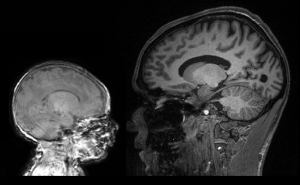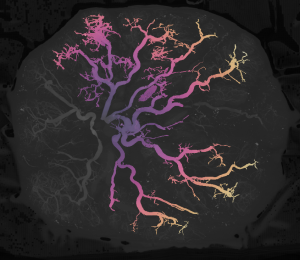We would like to offer our congratulations to Andrew Melbourne who has recently been promoted to Lecturer in Advanced Computational Imaging within the Translational Imaging Group (TIG). Working closely with clinical colleagues Andrew designs advanced quantitative imaging methods to answer research questions in the neonatal and adult brain and is developing novel techniques for fetal imaging at University College Hospital.
Andrew is a graduate in physics from Imperial College London and obtained his PhD at UCL in 2009 for work investigating motion correction strategies in contrast-enhanced magnetic resonance imaging (MRI). He has since become a valued member of TIG, not only through the significant contributions of his own research, but also through his role as a supportive and collaborative colleague.
Andrew’s current research investigates the use of quantitative MRI in establishing the links between very preterm births (those born at less than 32 weeks completed gestation) and subsequent neuro-developmental outcomes . This is supported by his development of research software through NiftyFit, an open-source software package for multi-parametric model-fitting of 4D magnetic resonance imaging data.
Andrew’s work is important because our understanding of neurodevelopment after preterm birth is still in its infancy. Cohorts of survivors of extreme prematurity are now reaching adulthood and his work is allowing us to understand more about long-term neuroimaging outcomes. However there is much more research to be done; whilst improvements in neonatal care have reduced the lowest gestational age at which premature babies are likely to survive, the prevalence of disabling conditions in these survivors remains high. Similarly, in complicated pregnancy, early delivery is often the only lifesaving option, but this predisposes babies to the risks of premature birth and further neurodevelopmental complications. The development of imaging technology that can accurately measure the effects of early birth is vital to further understanding the long-term outcomes of these at-risk babies. Andrew’s research into advanced imaging techniques will help to transform our understanding of these conditions and how to treat them.
We look forward to following the research developments and achievements that Andrew makes as Lecturer at University College London.


